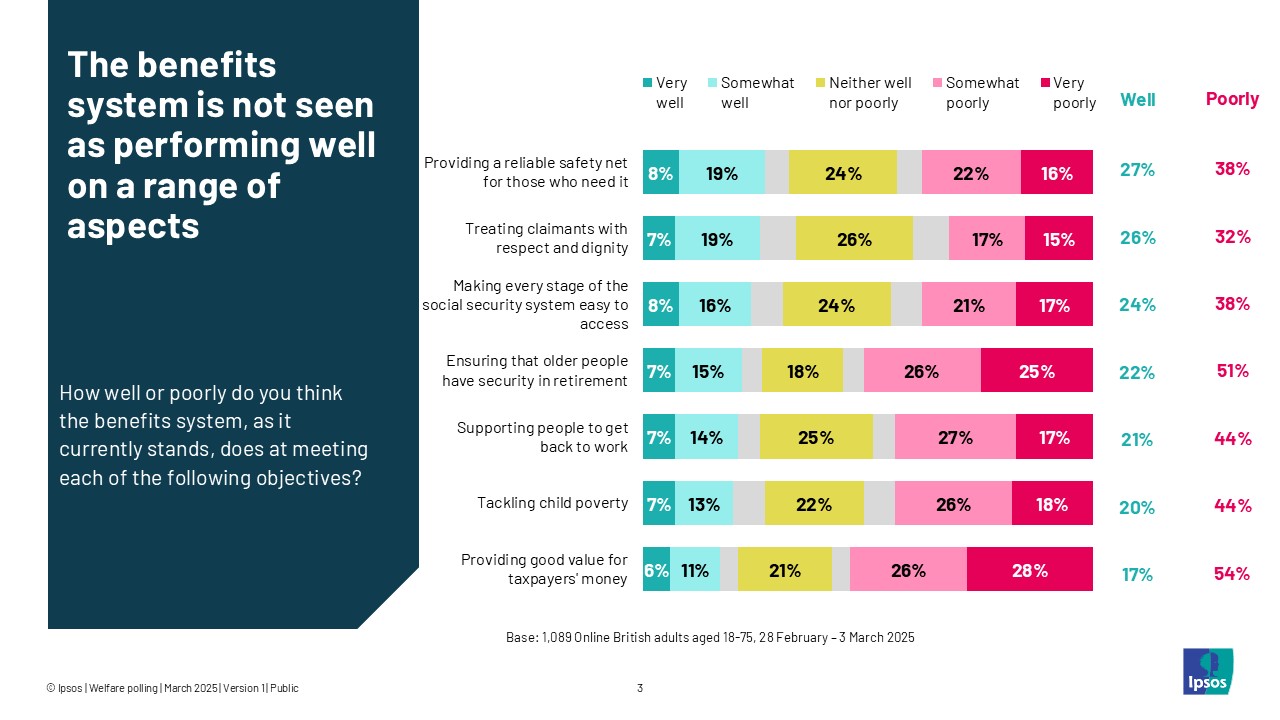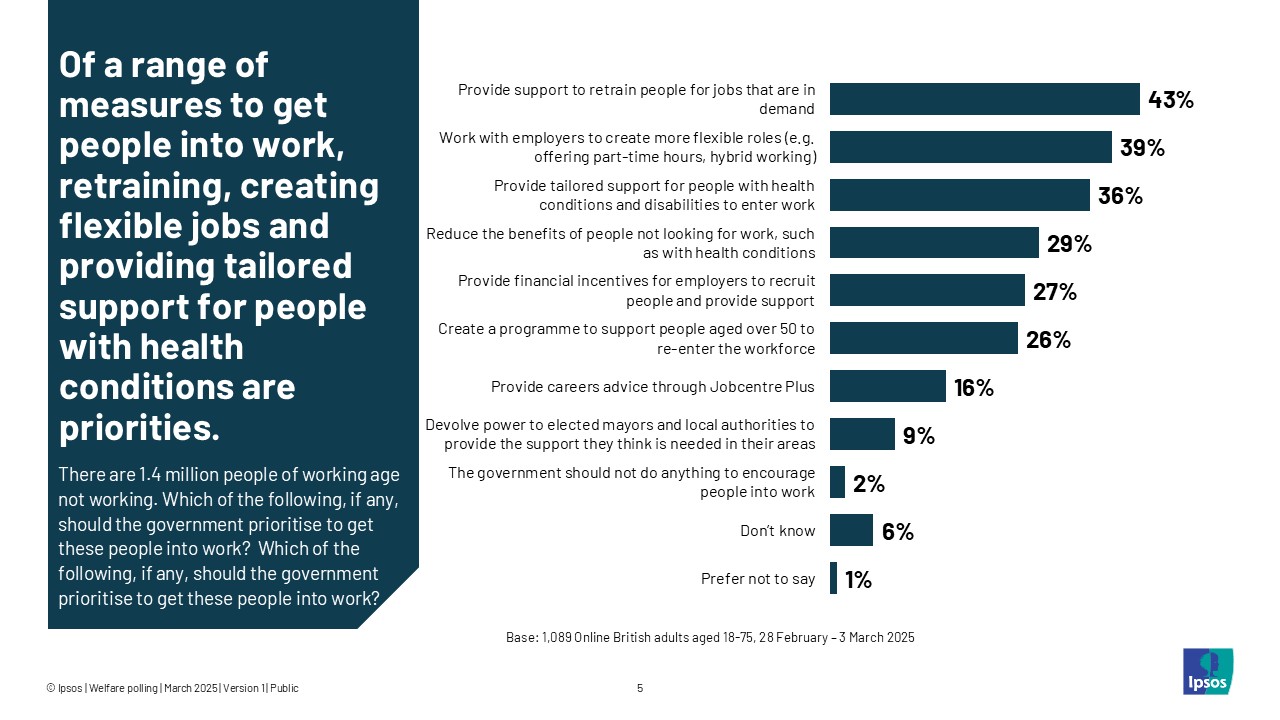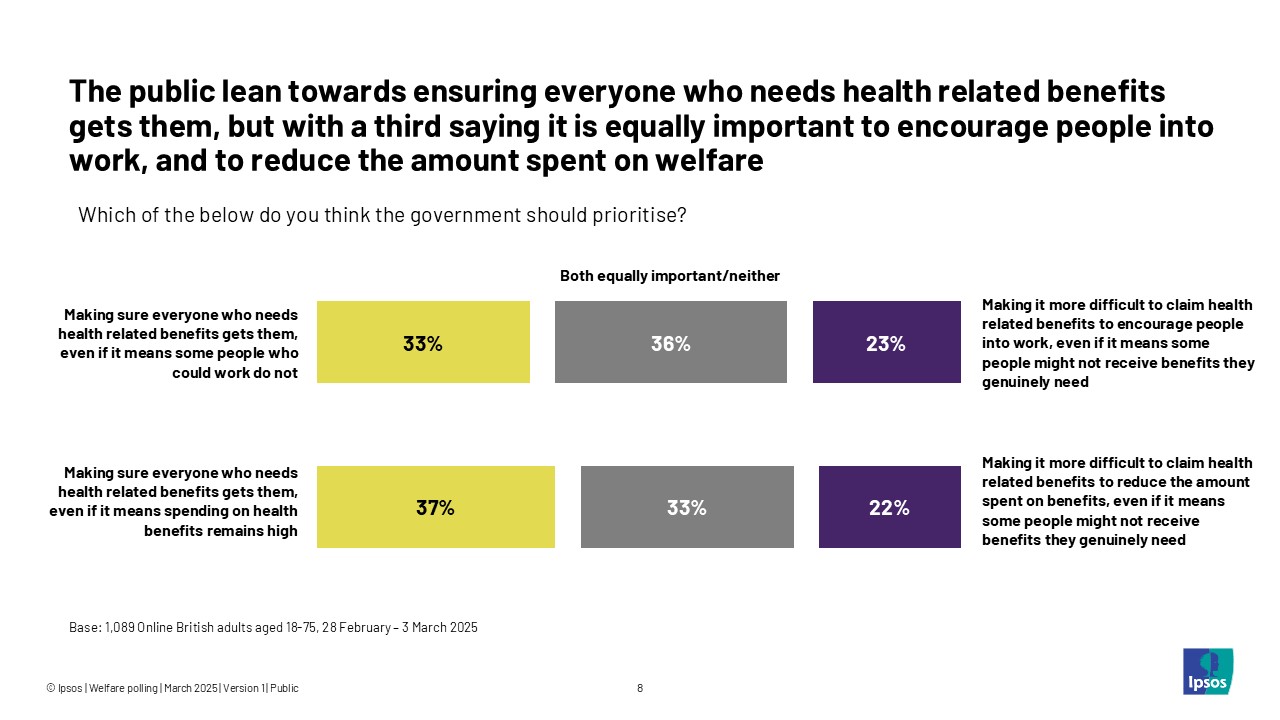Benefits paradox: Britons want compassion and responsibility, reveals Ipsos
As the government prepares to announce significant reforms to the Benefits system, a new Ipsos UK survey reveals the British public's priorities for welfare, highlighting a desire for greater support for older people in retirement, a robust safety net, and effective measures to help people back into work.
Current performance
- Dissatisfaction with current system performance: The public expresses concerns about the effectiveness of the current benefits system. Over half (54%) believe that it performs poorly at providing good value for taxpayers’ money. In addition, 51% say that it is poor at ensuring that older people have security in retirement, and 44% each say it is poor at tackling child poverty and supporting people to get back to work.

- Security in retirement is paramount: When asked what the government should prioritise when it comes to the benefits system, 38% of Britons believe ensuring older people have security in retirement should be the top priority for the benefits system. This is followed by providing a reliable safety net and supporting people to get back to work, both at 29%.
- Mixed views on the rise in disability benefits: The public attributes the increase in people claiming disability and health benefits to a combination of factors, including more people trying to cheat the system (44%), society recognising more health conditions as valid reasons for not working (43%), and people facing delays in receiving necessary medical treatment (41%).
Policy priorities
- Support for retraining and flexible work: When considering how to get people back into work, the public prioritises retraining for in-demand jobs (43%), creating more flexible roles with employers (39%), and providing tailored support for individuals with health conditions and disabilities (36%).

- Support for both access to benefits and encouraging work: 33% of Britons believe that ensuring everyone who needs health-related benefits receives them should be prioritised, even if it means some who could work do not. 23% say it should be made more difficult to pay benefits to encourage people to work, even if it means some people might not receive what they genuinely need. 36% say they agree with both equally or neither.

- Conditional support for requiring work-related actions: Nearly half of Britons (46%) believe the government should require people claiming health-related benefits to take actions like retraining or speaking to a work coach, risking benefit loss if they refuse. 37% say that the government should offer support to those on health-related benefits to return to work, but it should not be required.
- Shared responsibility for adequate income: 40% of respondents believe the government, employers, and individuals share equal responsibility for ensuring working people have an adequate income. Two in ten (20%) say that the government is primarily responsible, followed closely by 19% who say that employers are primarily responsible.
Commenting on the findings, Trinh Tu, UK Managing Director, Public Affairs at Ipsos, said:
Our research shows the tension at the heart of public attitudes towards welfare in Britain. The British public want a strong welfare system, but many are unhappy with how well it currently works. There is a clear desire to ensure older people have enough to live on in retirement. However, our research also reveals concerns about how the system supports those on health-related benefits. Many people believe in a compassionate approach that ensures everyone in need receives support. At the same time, there is a strong belief in the importance of encouraging work and potentially tightening access to benefits. Finding the right balance between supporting people and encouraging individual responsibility is clearly a challenge.
Technical note:
- Ipsos interviewed a representative sample of 1,089 adults aged 18-75 across Great Britain. Polling was conducted online between the 28th February-3rd March 2025.
- Data are weighted to match the profile of the population. All polls are subject to a wide range of potential sources of error.



